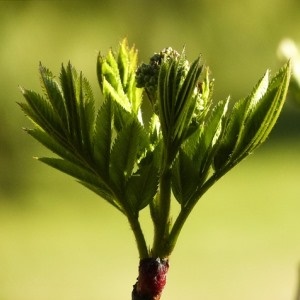
Trees, crucial absorbers of climate-harming carbon dioxide gas, may finally be balking at an ever-earlier spring season brought on by global warming, according to researchers.
Over the past several decades, trees across central Europe have been steadily sprouting their spring leaves earlier in response to warmer temperatures, they said.
Declining temperature sensitivity
As a result, forests absorbed more carbon dioxide in a longer growing season – a boon that has been worked into global warming projections.
But a study published in the science journal Nature said trees have slowed their pace of seasonal advance – raising fears it may stop altogether.
Read: Tree tips
The slowdown "suggests a current and possible future weakening of forests' carbon uptake due to the declining temperature sensitivity of (trees)", lead author Yongshuo Fu of Peking University in Beijing told AFP.
Forests play an important role in stemming global warming by absorbing carbon dioxide – the most abundant greenhouse gas – from the atmosphere.
For the study, an international team crunched decades of data drawn from seven common types of trees like beech, silver birch and horse chestnut at 1,245 sites in the wild ranging from Denmark to Bosnia.
Read: My tree in Africa
The authors said previous studies had relied on saplings or twigs tested in laboratory settings and not exposed to real-world changes.
In real life, they found, leaf-sprouting happened steadily earlier over two study periods: 1980-1994 and 1999-2013 – about 13 days overall over the past three decades.
Trees protecting themselves
But when the scientists compared the two terms, they noticed the advance of earlier sprouting had slowed by 40 percent in 1999-2013.
"We found the response (to earlier spring) has declined over the past three decades, and strong winter warming may further reduce it," said Yongshuo.
Read: Climate change hit list
The planet's average temperature has already risen 0.8 degrees Celsius (1.4 degrees Fahrenheit) since the Industrial Revolution. The UN goal is to limit global warming to two C overall.
The authors believe the trees may be trying to protect themselves against extreme weather.
Many types of trees need a period of cold temperatures before they are ready to sprout spring leaves – a hardwired mechanism to ensure winter has truly passed before they push out buds.
Weather conditions have become increasingly unpredictable and the trees' slower advance "would thus reduce the risk of late spring frost damage", the study said.
Read more:
'Carbon farming' to address climate change
Climate change cannot be ignored




 Publications
Publications
 Partners
Partners










